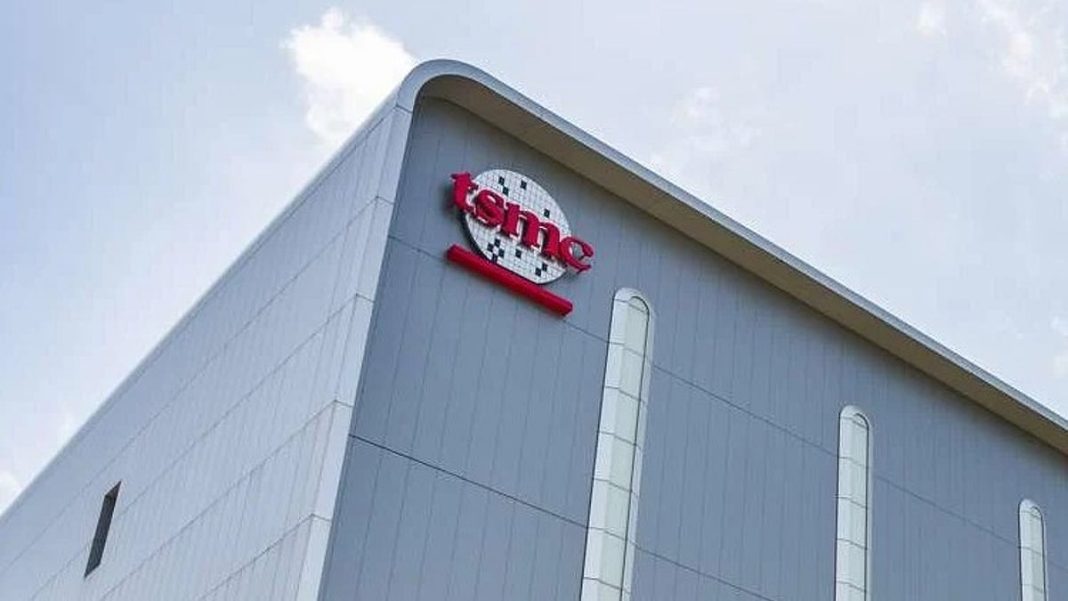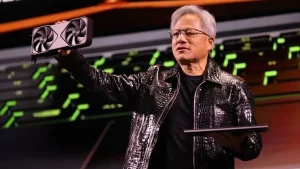TSMC’s Monthly Sales Growth Hits Lowest Since Feb 2024, Hints at AI Demand Drop
Key Takeaways:
- TSMC’s October sales growth slowed to 16.9%, the weakest pace since February 2024
- Nvidia CEO Jensen Huang requested additional TSMC wafers despite slowdown concerns
- Analysts expect Q4 sales growth around 27.4% amid sector valuation concerns
Chipmaking giant Taiwan Semiconductor Manufacturing Co (TSMC) reported significantly slower revenue growth in October, raising questions about potential AI demand cooling. According to Bloomberg data, the company’s sales increased by approximately 16.9% in October – marking the slowest growth pace since February 2024.
Despite the October slowdown, market analysts project TSMC’s sales will grow around 27.4% in the current quarter. The company’s shares have maintained strong performance, gaining approximately 37% since the beginning of 2024.
Market Context and Investor Concerns
The slowing growth report emerges amid broader tech sector volatility. Global tech stocks experienced significant declines last week as investors grew increasingly concerned about lofty sector valuations. Several Wall Street executives have warned about an overdue market correction, while Michael Burry’s Scion Asset Management disclosed bearish positions against Nvidia Corp.
Industry Leaders Remain Bullish on AI
Despite market uncertainties, major technology companies continue betting heavily on artificial intelligence. Meta, Alphabet, Amazon and Microsoft are collectively projected to spend over $400 billion on AI expansion next year – a 21% increase from 2025 levels – as they compete for leadership in emerging technologies.
Contradicting concerns about AI demand softening, TSMC has secured additional AI chip supply agreements with Nvidia. Nvidia CEO Jensen Huang confirmed on Saturday that he requested more chip supplies from TSMC, noting that demand for AI hardware “continues to exceed capacity” and is “growing month by month.”
Huang emphasized TSMC’s critical role in Nvidia’s success, stating: “No TSMC, no Nvidia.” He told reporters that business remains “very strong and growing month by month, stronger and stronger.” TSMC CEO C.C. Wei confirmed discussions about additional wafer requirements and expressed expectations for continued record sales.
This optimism extends beyond Nvidia. Qualcomm CEO Cristiano Amon told Bloomberg that the world “is underestimating the scale of AI’s future growth.” In October, Wei informed analysts that TSMC’s production capacity “remains very tight” and the company is working to bridge the demand-supply gap.
Understanding the AI Bubble Debate
The term “AI bubble” describes the convergence of investor enthusiasm, substantial capital inflows, and inflated valuations that may exceed the sustainable revenues these technologies can generate.
Recent months have witnessed several landmark AI deals:
- Nvidia’s multi-year supply and investment commitments to OpenAI’s Stargate data center program
- OpenAI’s partnership with AMD involving tens of billions worth of chips
- xAI’s $10 billion funding round at a $200 billion valuation
These major transactions have created an interconnected market dynamic where chipmakers, cloud providers, and AI platforms mutually reinforce each other’s valuations and financing access.
The accelerating pace of mega-deals and data center expansion has left investors grappling with a crucial question: Does AI represent a sustainable technological revolution or an emerging market bubble?






